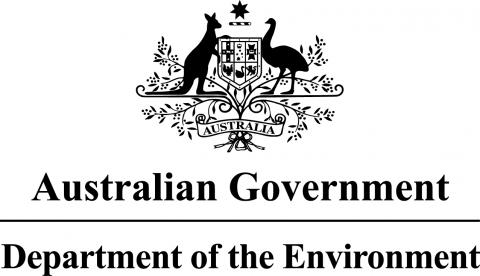Resources
Natural Environment Research Council
13 August 2013
Urgent cuts in carbon emissions are needed if Caribbean coral reefs are to survive past the end of the century, scientists have warned.
The Morning Bulletin
05 June 2013
MORE than 100 Australian scientists have called on the Queensland and Australian Governments to hit the pause button on any new port developments, while a massive national assessment of all the risks to the Great Barrier Reef is completed.
Signatory to an open letter sent to both governments, University of Queensland Professor Hugh Possingham said a massive, independent, peer-reviewed study of all threats to the reef needed to be undertaken. Read more

News.com.au
22 August 2013
SCIENTISTS fear a mosquito that carries deadly viruses and breeds rapidly could soon invade the Australian mainland after the insect was found in the Torres Strait.
A University of Queensland study has found established populations of the Asian tiger mosquito on the islands of Waiben (Thursday) and Ngurupia (Horn). Read more

ABC News
02 December 2013
Researchers on the Great Barrier Reef off Queensland are freezing coral sperm to stop some of the animal species from becoming extinct.
Over the past 30 years, nearly half the coral cover on the Great Barrier Reef has disappeared and researchers are concerned some of the animal species could soon be wiped out. Read more

Brisbane Times
05 June 2013
Australia's leading marine scientists have demanded governments take better care of the Great Barrier Reef just weeks from a key United Nations meeting considering the impacts of proposed coal and gas development on the world heritage site.
In a joint statement, the scientists urge governments to contain several proposed new ports along the reef's coast associated coal mining and gas projects to existing industrial areas. Read more

Science World Report
21 August 2013
When most people think of coral, they think of the beautiful tropical reefs that thrive in the Caribbean and along Australia. These corals are seen as stationary--immovable and part of the landscape. Yet corals are animals and, like many other seafaring creatures, are mobile when they're younger. Now, scientists have used computer simulations to reveal the epic, ocean-spanning journeys travelled by tiny coral larvae through the world's seas.
News.com.au
05 June 2013
SCIENTISTS warn big business is ruining the Great Barrier Reef, saying more protection measures must be introduced to halt the reef's dramatic decline.
More than 150 scientists have joined forces to warn of the industrialisation of the reef ahead of a UNESCO World Heritage meeting in 12 days.
Led by University of Queensland's Professor Hugh Possingham, they say science is being ignored as big business develops reef waters. Read more

News.com.au
15 October 2013
OVERFISHING is putting sea cucumbers in a pickle on the Great Barrier Reef, marine biologists say.
Sydney University's Professor Maria Byrne and Dr Hampus Eriksson, a post-doctoral researcher at Stockholm University, say more than 24 sea cucumber fisheries have closed in recent years. Read more

The Conversation
06 September 2013
Australia is surrounded by a thin green line of seagrass meadows potentially worth A$5.4 billion on international carbon markets, and which could contribute to Australia and other nations meeting carbon emissions targets. Whether that potential can be realised is very much dependent on the type of carbon management scheme our next government puts in place.
Most people are aware forests lock up carbon dioxide from the atmosphere. This is a part of our carbon accounting scheme and underpins tree-planting and forest conservation schemes, giving value to this “green carbon”. Until now, the carbon captured by marine plant systems, so-called “blue carbon”, has largely been ignored in carbon accounting. Read more
Popular Science
23 September 2013
To track the effects of warming seas on coral reefs, a new survey project is launching an extensive database of panoramic underwater imagery.
Today the Catlin Seaview Survery - which recently brought us some amazing views of the Galápagos coastline - launches the first-of-its-kind databse of our underwater world. Read more




